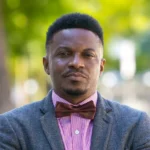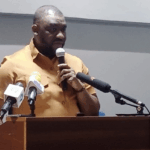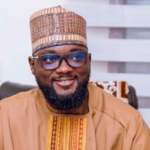
By bringing together some of the best and brightest minds within the climate change, innovation, and sustainability space, Mrs. Bawumia has made sure that she has not left her foot off the pedal even after leaving office as the second lady. Samira Bawumia’s focus on such critical issues bedeviling human sustenance is a timeous contribution to our nation, Africa and the world. Under the auspices of the highly recognized and well-regarded African Women and Children’s Conference (AFRIWOCC), Mrs Bawumia is dedicating her time and efforts to some of the debilitating issues facing young people especially women in Ghana and across the continent.
This year AFRIWOCC gathered under the theme “Young Voices, Innovative Ideas, Greater Impact for Africa,” dedicating two days to quality, multi-faceted, practical oriented discourse aimed at highlighting innovation, experiences, lessons, challenges, success stories and crafting a road map for a more sustainable environment and uplifting lives. The talent and quality on display were a true testament of Africa’s potential and inexorable depth, agency and value in addressing contemporary challenges.
It is therefore no wonder that the conference garnered widespread support. In fact, the event was co-hosted by the United Nations Resident Coordinator’s Office in Ghana further establishing its significance and profile. This is an immense endorsement of the initiative and transformational work that Samira Bawumia has been undertaking. Her work has attracted the support of other stakeholders both nationally and internationally including the AfCFTA Secretariat, Fordham University, Kosmos Innovation Center, Global Affairs Canada, Ashesi University, the Canadian Embassy, Norwegian Embassy, Merton and Everret LLP amongst others. The Minister for Environment in Guinea Hon. Djami Diallo, international development agents such as the Vice President for the African Development Bank Dr Kevin Kariuki and representatrion from the United Nations Convention to Combat Desertification were fully on board.
However the most visible and significant partners were the youth. Young people from various backgrounds were present showcasing their innovative work and sharing their experiences. At the dawn of independence, the iconic African figure Kwame Nkrumah stated that “Africa is ready to fight his own battles and show that after all the black man is capable of managing his own affairs.” On that stage, at the moment, at AFRIWOCC 2025, this quote came full circle as young people what the African youth is capable of through their awe-inspiring products, innovative works and presentations. For instance, the design of renewable sanitary pads by ECO-PERIOD, an initiative led by one of Africa’s gifted young women is a monumental contribution to addressing period poverty, plastic pollution and youth unemployment.
It was not just about science and technology. The unique feature about AFRIWOCC is its ability to draw on the arts and African culture as a tool to address ecological degradation. The arts are such a powerful and compelling instrument to engage in environmental education, behavior change and intergenerational engagement. Impact makers such Latif Abubakr, Okbell Bedwei Majdoun, Wode Maya and Eugene Konboye were tat hand to show they have used their ingenuity to tell compelling stories. Others included Makafui Awuku, who was motivated to establish Mckinngtorch an organization that creates sustainable cities by converting plastic waste into valuable products due to his experience growing up as an asthma patient who suffered from frequenting burning in his community.
Other sessions included artificial intelligence for sustainable development, demystifying the policy process, youth climate leadership, education frameworks for building technical skills, governance structures that include rather than exclude young voices, and entrepreneurship pathways that turn environmental challenges into economic opportunities. Hajia Samira Bawuia herself led a session on clean cooking call on women to embrace environmentally sustainable cooking initiatives that will be less harmful to the ecosystem and healthier for families.
Forward looking recommendations such as strengthening initiatives to empower the youth and children in addressing climate change, training children to become educators in climate change and the encouragement of government to transition from AI as a theory to its practical usage were set forth at the end of the conference. A major outcome was the development of a communique which sets forth a practical, actionable and solution-oriented road map for women and young people’ s meaningful participation in climate governance. It also called for larger commitment to financing green initiatives and strengthening gender responsive climate action amongst others. Environmental scientist Dr Frederick Out-Larbi, lecturer at the University of Energy and Natural Resources, has stated that air pollution is a major health concern in Ghana leading to about 28, 000 deaths each year, higher than deaths related to malaria and HIV. The call for climate action is therefore both urgent and critical.
Samira Bawumia has demonstrated that whether in or out of office as second lady, she is not just an observer but a protagonist of transformation. Her influence stretches far beyond her position, far beyond her immediate enjoinment, far beyond her community, far beyond her nation and far beyond those living now to future generations. Her commitment to the development and empowerment of women, youth and creating a sustainable environment is one that inspires and stands as a testament to her quality, leadership, potential and character.
*******
Prof. Etse Sikanku is an Associate Professor at the School of Journalism and Media Studies, University of Media, Arts and Communication (UniMAC)



